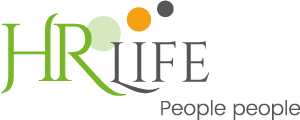Have you been in a senior HR interview process lately? Chances are it was a fairly lengthy affair with multiple stages and included a presentation. Maybe it was the classic 30/60/90 day plan, a people strategy outline or the real-life business challenge scenario. We’ve had so many of our candidates tell us these presentations feel like a full-on project. A huge time and emotional investment which frequently leaves them questioning whether they’re really necessary and speculating on what actually happens to that presentation after it’s been delivered.
What our candidates said
We asked our HR network how they really feel when they’re asked for a presentation, and here’s what they told us:
- 22% said “100% preso – my time to shine!”
- 48% admitted “Full of dread, but I’ll do it.”
- 28% went with “Nah! No free consultancy here.”
- 2% had other things to say in the comments
Interesting! Whilst some love the chance to showcase their thinking, others see it as free consultancy. Sharing their ideas with no guarantee of a role at the end. From what we hear, presentation heavy processes are definitely leaving an impression and there’s certainly a fine line between a fair assessment and expecting candidates to hand over fully formed solutions, especially when it can feel like unpaid consultancy!
As one commenter put it, “I don't mind a presentation that's fairly generic, but as soon as it starts to become much more tailored I do think it's something where a company should consider reimbursing candidates for their time as they are effectively benefitting from free IP.”
Another shared, “Only last year there were several unsuccessful candidates complaining about the misuse of their presentations by the company they had interviewed with. This informed my decision to be mindful of keeping an interview presentation generic”
Other comments included “When the task is ‘be as creative as possible but it has to be in PowerPoint’ then I just walk!” before detailing that they’ve “prepared presentations in advance and then never heard from the employer again and suspect they reused my presentation somewhere else”
We’ve also heard the stories about candidates spending days perfecting decks, rehearsing slides, and trying to strike the right tone, only to find out the role gets pulled or they never get any feedback. That’s when frustration really sets in.
So what advice would we give our candidates being asked to present, particularly in this current market place?
- Always clarify the brief
- Keep it high level
- Show your thinking but don’t give away all of your IP
And if you’re a hiring manager, a good presentation can demonstrate thinking and a person’s potential but not every one shines with a Powerpoint.
One person suggested a more human twist: “What could be fun is to do an informal presentation on something they’re genuinely interested in – that might tell you even more about the candidate.”
What our clients said
When we posed a similar question to our HR hiring network we asked them – when hiring for senior HR roles, what do you expect from candidates?
- 35% said they want a presentation which they would send out in advance.
- 11% prefer a task completed on the day (To avoid the use of ChatGPT?)
- 45% said neither is required.
- 8% thought psychometrics more insightful.
A third of hiring managers opt for a presentation sent out in advance. Many would say it’s the best way to assess how a candidate approaches complex business problems. Which, to be fair, makes sense particularly for senior HR roles where stakeholder influence, communication, and strategic thinking matter just as much as technical skill.
Several of our clients told us they still see real value in presentations when they’re handled thoughtfully. One told us, “It’s the best way to see how someone thinks on their feet and structures their ideas.” Another admitted, “It’s a tricky balance as we do want to assess capability and hear ideas rather than it seem like we’re expecting free consultancy.”
There’s also been some reflection about fairness in the process, with a few suggesting shorter, discussion-based tasks or using real but anonymised business examples instead of open-ended projects. The goal, as one hiring leader put it, “is to test potential, not endurance.”
We’re hearing both sides loud and clear. Clients using presentations to test strategic thinking, and candidates feeling the pressure to deliver consultancy-level work. Maybe the real question is: how do we make this fair for both sides?
What’s the middle ground?
If you’re hiring, be clear about what you’re asking for. Are you assessing style, structure, or substance? If you’re interviewing, protect your time and ideas. Show how you think, but don’t give away your entire playbook.
Because while “the preso” might be here to stay, maybe it’s time to make sure it’s adding value to the process and not just adding more pressure and causing resentment. After all, hiring is a two-way process and you want to maintain a high level of engagement through-out. A streamlined process which is relevant to the role with timely and specific feedback can be the difference between securing or losing a great hire.
It’s a topic that can clearly hit a nerve! The consensus? Presentations can be useful but only when they’re fair, purposeful, and handled with respect for the candidate’s time and ideas.
Thanks to everyone who joined the conversation with us on LinkedIn and those who personally shared their thoughts with us. We loved hearing your stories and experiences. Let’s keep the conversation going, do presentations still have a place, or is it time for a rethink?
If you’re rethinking your hiring process or planning your next career move, we’re always happy to talk. We spend our days immersed in the HR market, whether it’s connecting great people with equally great opportunities or helping clients shape recruitment processes that really work.
Get in touch any time – whether you want to talk talent, trends, or just swap stories from the world of HR.

